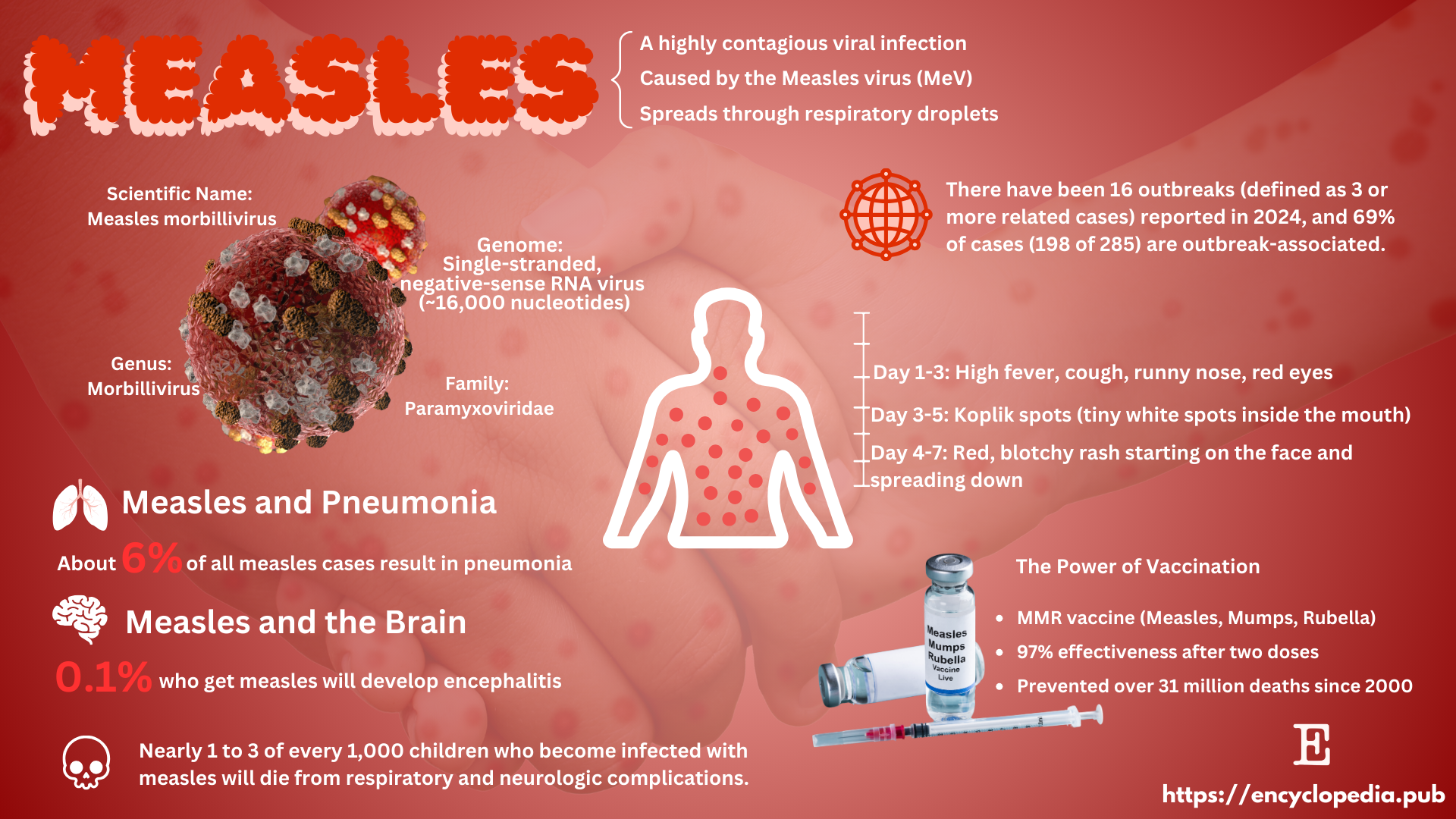Measles is a highly contagious viral infection that has affected millions worldwide. Despite the availability of vaccines, outbreaks still occur, making awareness and prevention crucial.
What is Measles?
Measles is caused by the measles virus, which spreads through respiratory droplets when an infected person coughs or sneezes. It primarily affects children but can impact individuals of all ages who are not vaccinated.

Source:https://encyclopedia.pub/image/3170
Symptoms of Measles
The disease typically progresses through different stages, with symptoms appearing about 10-14 days after exposure. Common symptoms include:
-
High fever
-
Cough
-
Runny nose
-
Red, watery eyes
-
Koplik spots (small white spots inside the mouth)
-
A widespread red rash that starts on the face and spreads downward
Prevention: The Importance of Vaccination
The most effective way to prevent measles is through vaccination. The Measles, Mumps, and Rubella (MMR) vaccine is highly effective, providing lifelong immunity in most cases. Public health campaigns advocate for widespread immunization to achieve herd immunity, protecting those who cannot be vaccinated due to medical conditions.
The Global Impact of Measles
Despite significant progress in vaccination efforts, measles remains a concern in many regions, particularly in areas with low immunization rates. According to the World Health Organization (WHO), measles outbreaks still lead to thousands of deaths annually, mostly among young children. Efforts to eradicate measles continue, emphasizing the importance of global cooperation and vaccine accessibility.
Conclusion
Measles is a preventable yet persistent threat. Awareness, vaccination, and global health initiatives play crucial roles in reducing its spread. By ensuring high vaccination coverage, we can protect future generations from this potentially deadly disease.
For more details, you can view the online entry Measles, or the online video Measles is Back Across the U.S..
